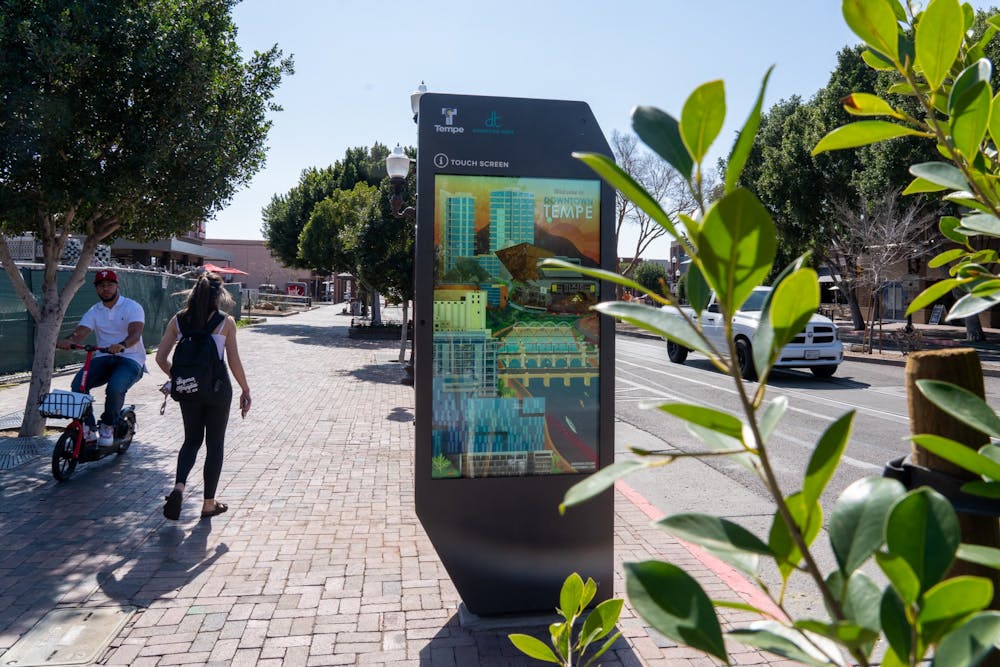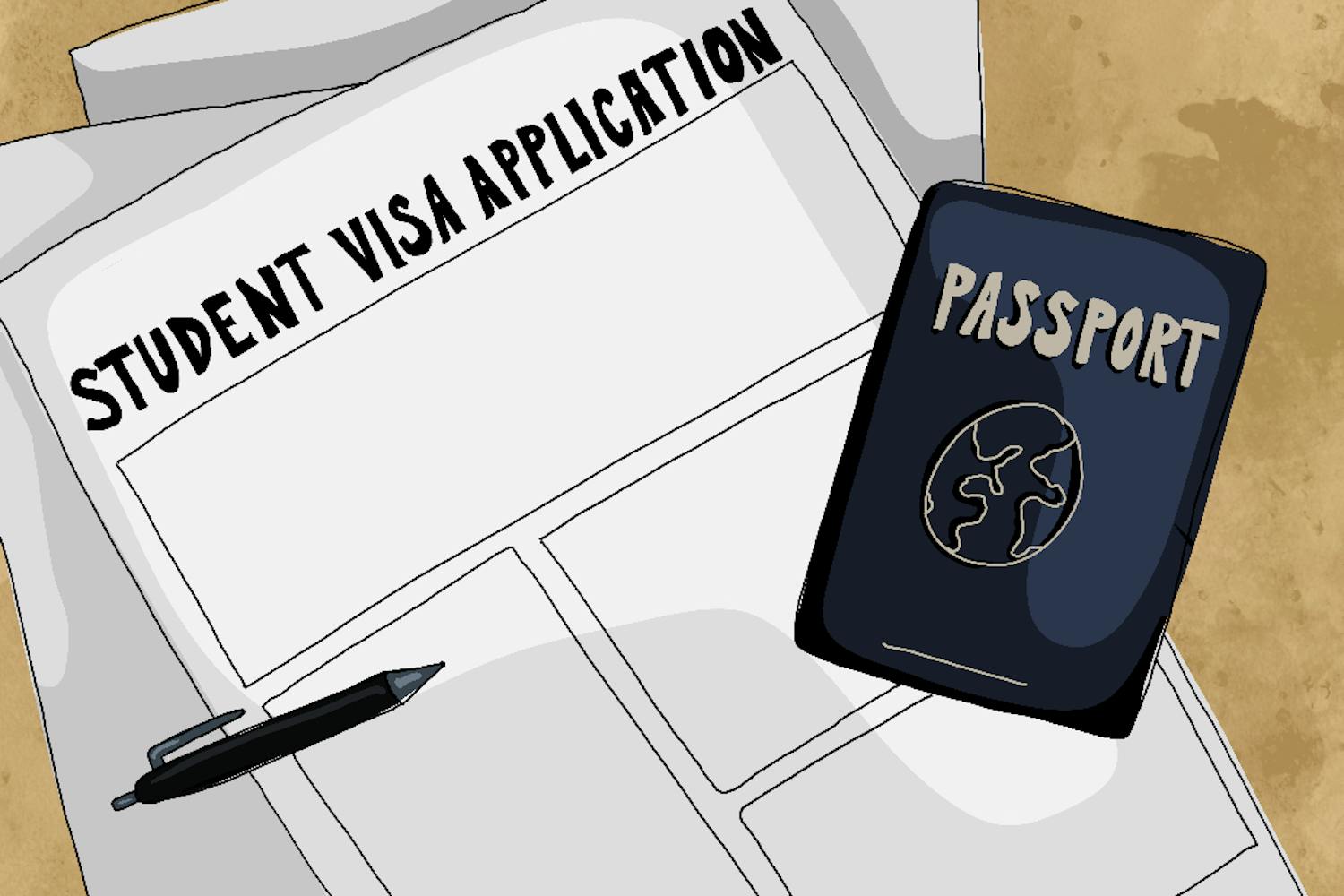Downtown Tempe Authority partnered with the city of Tempe to bring 15 interactive kiosks as a way-finding tool that improves the livability of Tempe. The kiosks will be the first of their kind in the state of Arizona.
The Downtown Tempe Authority is a non-profit organization funded by property owners to improve downtown Tempe.
Kate Borders, president and executive director of Downtown Tempe Authority, said the goal of DTA is "to make downtown as vibrant and sustainable as it possibly can be."
The organization aims to improve Tempe for the property owners who fund DTA alongside stakeholders of the community which includes residents, merchants and many others.
Borders said DTA, the city of Tempe and IKE Smart City, the organization that owns the kiosks, all worked together to make the launch a possibility.
According to a mass email sent out by TaiAnna Yee, a spokesperson for the city of Tempe, the kiosks serve as a tool that "improves social equity, encourages city exploration, promotes economic development and enhances public safety."
Borders said Tempe representatives have many reasons to fulfill these goals.
"If a place is not safe or does not have access to information, then you will lose guests, visitors, residents," Borders said. "People will not continue to come to this place so the viability of a place is impacted by those things."
Yee said the kiosks will be able to improve the viability of Tempe; a few means of improvement include providing a business directory, job function category and free Wi-Fi so it can function like a public library.
"We just want to ensure that we provide as much to as many as possible," Yee said.
Yee said the kiosks also promote a pedestrian environment and have air quality monitoring technology.
The kiosks are completely funded by money gained from advertising.
Lauren Kuby, vice mayor of Tempe and manager of events and community engagement at the Julie Ann Wrigley Global Institute of Sustainability, said the kiosks are both environmentally and economically sustainable.
"The city of Tempe is facing many challenges right now," Kuby said. "Traffic congestion, lack of affordable housing, human services ... and (the kiosks) offers resources for every aspect of sustainability."
Looking at a city through a sustainable lens means paying attention to economic, environmental and social balances. Which is why the kiosks will provide business listings, a photo booth and an emergency call system, among many other applications.
"We have a feature where if you are in a wheelchair you can press a button and the whole screen will come closer toward you," she said.
Kuby said students in particular can benefit from the kiosks because they spend a significant amount of time on Mill Avenue so they, in addition to the rest of Tempe, will be able to explore more of what Tempe has to offer.
"They're just a great assets," Kuby said. "They're good for tourists and residents, it's one of those smart city tools that has so many applications."
Reach the reporter at czuniga9@asu.edu and follow @celzuniga on Twitter.
Like The State Press on Facebook and follow @statepress on Twitter.




